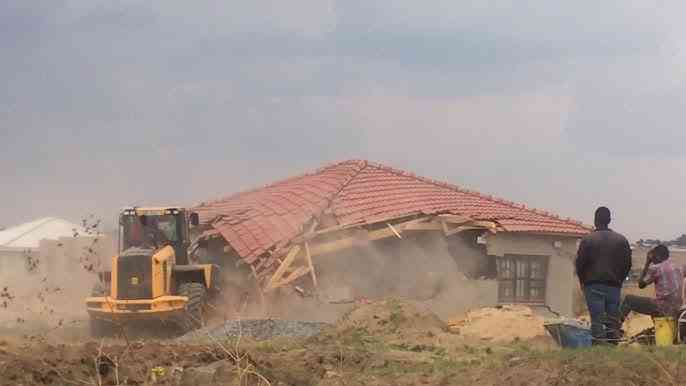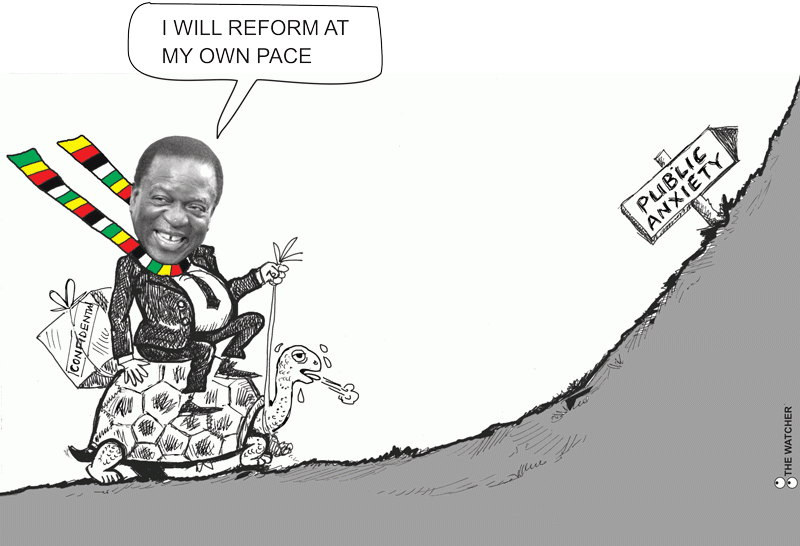
The land question has always been very political in Zimbabwe. This is reflected in the wording of the statutes that govern it. The communal land in Zimbabwe is governed by pieces of legislation enacted in the colonial era of 1934. The Acts have colonial tenants and slave master relationship it is very unfortunate that even in up to this day in 2024 black Zimbabweans only have the right to use their ancestral lands due to the mercy of the government and mining companies. As argued in the case of Livison Chikutu & Ors v Min of Lands & Ors The Communal Land Act has no place in human rights.
In recent years, Zimbabwe has witnessed a troubling phenomenon: the destruction of houses In Zimbabwe, village heads have historically been responsible for allocating land and housing to individuals in rural communities. This traditional practice has provided security and shelter to many vulnerable individuals and families, allowing them to establish roots and build a sense of community. However, the government's controversial decision to demolish homes that were previously allocated by village heads has sparked heated debates and raised concerns about property rights, displacement, and the well-being of affected communities. In this article, we will delve into the reasons behind these demolitions, explore the consequences for the affected individuals, and examine the broader implications for Zimbabwean society.
Reasons for demolitions
While the allocation of houses by village heads has been a longstanding practice, the recent demolitions have been justified by the government on several grounds. One of the primary reasons cited is the need to regularize urban planning and address housing shortages in urban areas. The argument put forth is that some houses were constructed without proper authorization, leading to haphazard urbanization and the violation of building regulations.
Furthermore, it has been suggested that these demolitions are part of a broader effort to curb corruption and enforce transparency in the allocation of resources. The government contends that some village heads abused their power by allocating houses to individuals who did not meet the necessary criteria, resulting in the unfair distribution of public resources.
Consequences: Affected individuals
The destruction of houses has had severe consequences for the individuals and families who were living in them. Many have found themselves suddenly homeless, without any alternative accommodation. Displaced individuals have had to rely on the support of relatives, friends, or humanitarian organisations to secure temporary shelter. The loss of homes has also disrupted livelihoods, as some individuals have lost their sources of income due to the destruction of home-based businesses.
The demolitions that have been taking place in Zimbabwe are having a significant emotional impact on families who have lost their homes. They are left feeling displaced and uncertain about their future, and the sense of community they once belonged to is now severed. The psychological effects of such upheaval can be long-lasting and detrimental to the well-being of those affected.These demolitions raise broader implications for Zimbabwe's social fabric and governance. Critics argue that the government's actions have violated property rights, as many of those affected had legally acquired their homes through the traditional allocation process. This has created an atmosphere of insecurity, as citizens question the government's commitment to upholding the rule of law and the sanctity of property ownership.
- Mavhunga puts DeMbare into Chibuku quarterfinals
- Bulls to charge into Zimbabwe gold stocks
- Ndiraya concerned as goals dry up
- Letters: How solar power is transforming African farms
Keep Reading
Furthermore, some believe that these demolitions are politically motivated, with the government targeting specific communities or individuals seen as opposition supporters or a threat to the ruling party's interests. This has further fueled suspicions and deepened divisions within Zimbabwean society. It is important for the government to consider the impact of its actions on its citizens and to ensure that its policies are transparent and fair. The destruction of houses in Zimbabwe, previously allocated by village heads, has become a contentious issue with far-reaching consequences. While the government argues that these demolitions are necessary for urban planning and to address corruption, the resulting displacement and violation of property rights have generated significant backlash. The government must strike a balance between addressing urban challenges and protecting the rights and well-being of its citizens.
The constitution of Zimbabwe provides several scenarios in section 71 where individuals may be deprived of their property. These scenarios include situations such as defense, public safety, and public order. However, the parameters of these scenarios are not clearly defined and are left to interpretation, making this section subject to abuse.
Although the constitution provides for compensation of the displaced parties, the issue of "adequate" compensation arises. There are no guidelines or frameworks on how the amounts are supposed to be derived, and often, the government and companies have discretion. For instance, the communities of Marange that were moved to Arda Transau were given four-bedroomed houses, but they are not satisfied with this kind of compensation. The compensation does not consider the sentimental value of the improvements made on the land. The recent lithium plant in Murambinda is said to have moved people from a rural kind of setup to an urban kind of life, forcing them to sell their livestock, as they did not fit in the urban set up.
The Zimbabwean government has implemented various policies and mechanisms to address compensation for land displacement, but these have faced challenges and limitations. These include limited financial resources, disagreements over valuations, and prioritisation of funding other national development priorities.
Compensation?
To value compensation, several factors need to be considered. Firstly, proper valuation of the land, houses, and other assets belonging to the displaced villages is crucial. Independent and transparent assessments should be conducted to determine the market value of the properties.
This should include the value of any improvements made by the villagers. However, this has not been the case in rural Zimbabwe where mining companies decide how much they want to pay.
Secondly, displacement disrupts the livelihoods of affected villagers, and compensation should account for the economic impact, including loss of agricultural land, businesses, or income-generating activities. Assessing the long-term economic consequences and providing appropriate compensation or alternative livelihood opportunities is important.
Thirdly, displaced villages often lose access to basic services such as water, sanitation, healthcare, and education. Compensation should consider the cost of restoring or providing alternative access to these services in the new location. This includes infrastructure development and access to social amenities.
Lastly, displaced villages often have strong cultural and social connections to their land and community. Compensation should account for the intangible losses associated with these connections.
Efforts should be made to preserve or recreate community structures, social networks, and cultural traditions in the new location.
Vulnerable groups such as women, children, the elderly, and persons with disabilities should have their specific needs taken into account by providing support for their unique challenges and ensuring their rights and well-being are protected. There is a need to establish accessible and transparent grievance mechanisms.
Displaced villagers should have avenues to raise concerns, provide feedback, and seek resolution for any disputes or grievances related to the compensation process. These mechanisms ensure accountability and the fair resolution of issues that may arise.
Each situation of displacement is unique, and the specific considerations for compensation will depend on the context and circumstances. There is a need for extensive engagement with the displaced communities, understanding their specific needs, and ensuring a fair and participatory process. This will contribute to more effective and just compensation outcomes
- Mutowekuziva is a registered legal practitioner. She has keen interest in human rights, development and governance. These weekly New Horizon articles, published in the Zimbabwe Independent, are coordinated by Lovemore Kadenge, an independent consultant, managing consultant of Zawale Consultants (Pvt) Ltd, past president of the Zimbabwe Economics Society and past president of the Chartered Governance & Accountancy Institute in Zimbabwe (CGI Zimbabwe). — [email protected] or mobile: +263 772 382 852











